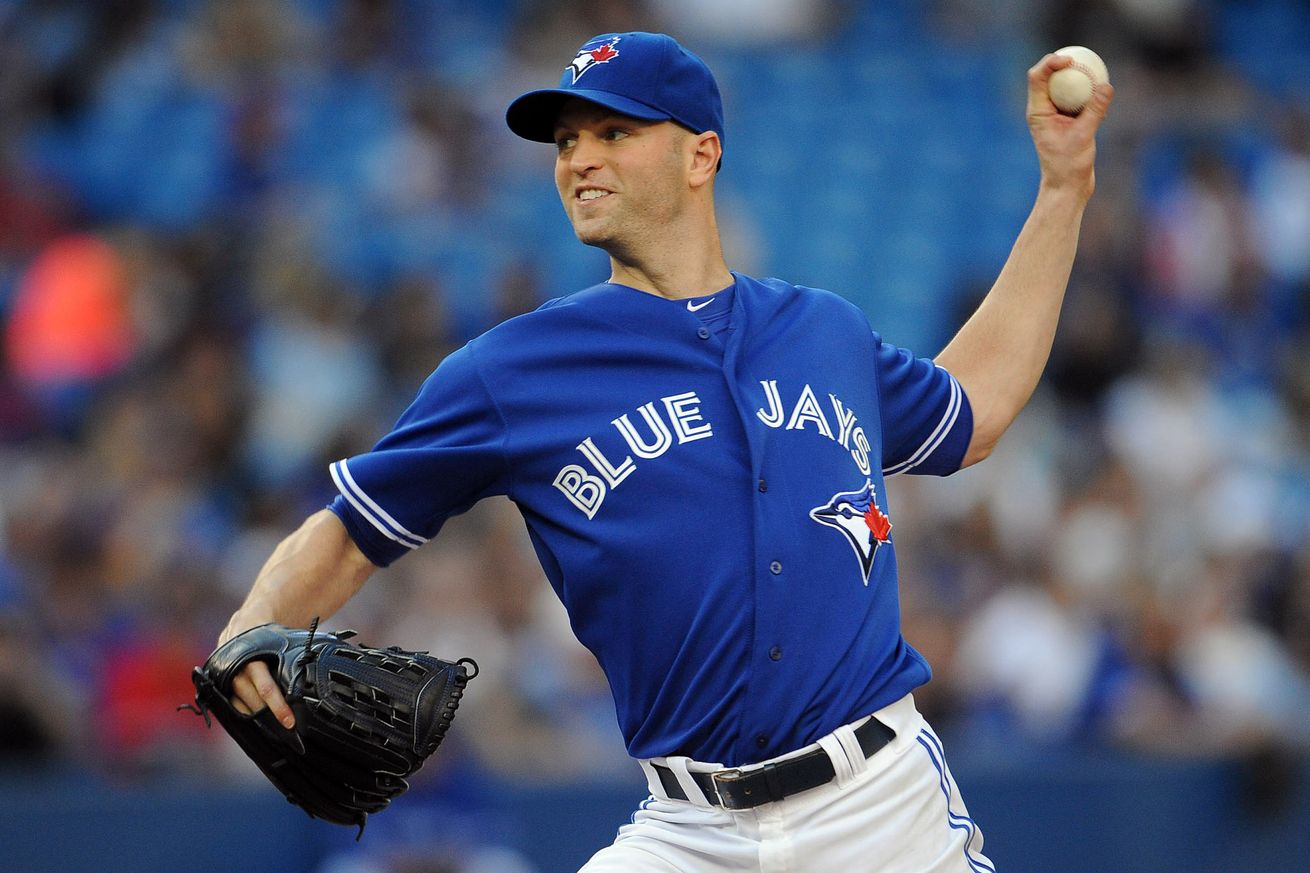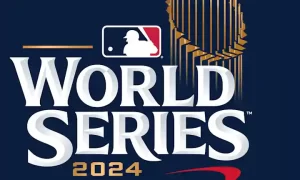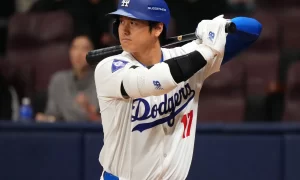With the trade deadline in the rear-view mirror, rather than a typical team/player/trade analysis, let’s get theoretical: What would the playoffs look like, and how would they unfold, if the season were to end today? Before getting started though, some ground rules:
– We will talk through each playoff matchup, beginning with the Wild Card Games and continuing all the way through the end of the World Series
– After discussing each round, we will predict the results, and move on to the next round based off of those results
– Factors affecting games, such as coaching decisions, will be fabricated, but based on past patterns (in other words, this is based on our assumption of manager behavior, not our analysis of best practices)
– Even though it is only August, we will pretend that games are taking place in October, so we can throw weather in the mix
– As per current MLB Playoff Seeding Rules, if two teams hold identical records, then there will be a one-game play-in for the playoffs, with the better head-to-head record being the home team
– As far as injuries are concerned, players who are expected to return at some point before playoff rosters are set (i.e. Clayton Kershaw) will be considered healthy for this scenario; players who are already out for the rest of the season will remain unavailable (e.g. Blake Swihart)
With that in mind, let’s get started. Below are the teams who would be making the playoffs at the end of play on August 15th.
American League:
East: Blue Jays, 67-52 (3)
Central: Indians, 67-49 (2)
West: Rangers, 70-50 (1)
WC1: Orioles, 66-51 (4)
WC2: Red Sox, 64-52 (5)
National League:
East: Nationals, 70-47 (2)
Central: Cubs, 73-43 (1)
West: Giants, 66-52 (3)
WC1: Dodgers, 65-52 (4)
WC2: Marlins/Cardinals, 62-56 (5)
WILD CARD ROUND:
Play-in Game: Miami Marlins at St. Louis Cardinals
With both teams finishing the season at 62-56, and only one Wild Card spot up for grabs, the Marlins head to St. Louis to take on the Cardinals in a one-game playoff to determine who will be advancing to October baseball. Mattingly sends Ace Jose Fernandez to the mound, up against Cardinal’s righty Adam Wainwright. Matheny’s decision to go with his veteran was supported by Wainwright’s career 3.03 ERA in the postseason as well as a 3.06 home ERA this season. Unfortunately, the pitcher’s duel was ultimately won by Fernandez, as he went seven shutout innings before letting the bullpen take over. The Miami Marlins advance to the Wild Card game.
Boston Red Sox (5) at Baltimore Orioles (4)
As had been anticipated for much of the season, two teams from the AL East meet for the Wild Card game in early October. Farrell, having stated that Rick Porcello has been the team’s stopper all season, calls upon him to face a prolific Orioles offense. Opposing him is Oriole half-ace Chris Tillman, who owned the Sox in the only game he pitched against them this season. This time around though, Boston’s young stars, led by Mookie Betts, excel in their first taste of playoff action, scoring twice in each of the first two innings. On the other side of the ball, Porcello provides a quality start and the Orioles fail to score on a suddenly intimidating Boston bullpen. The Red Sox advance to face the Rangers in the ALDS.
Miami Marlins (5) at Los Angeles Dodgers (4)
With Fernandez having pitched in yesterday’s game, the Marlins send Andrew Cashner to the mound to take on the greatest regular-season pitcher in the world: Clayton Kershaw. Kershaw though, has not been the greatest post-season pitcher, and that continues in this game, as he gives up two home runs to Marlins outfielder Marcell Ozuna, leaving the game in the middle of the 6th inning down by three runs. The Dodger offense, however, gets them back in the game, and they ultimately prevail thanks to timely hitting by veterans Adrian Gonzalez and Josh Reddick. The Dodgers are victorious, advancing to the next round.
AMERICAN LEAGUE DIVISION SERIES:
Boston Red Sox (5) at Texas Rangers (1)
Rangers win series 3-2: Price gets lit up in game 1, Wright loses a tight game to Darvish in game two; The next two games go to the Sox, with Porcello winning a 4-3 game three, and though Pomeranz allow 5 runs in 4.2 innings, the Sox offense is able to come back thanks to a dominating bullpen performance by Eduardo Rodriguez, who goes 2.1 innings, no runs. David Ortiz hits a go-ahead homerun in the ninth, and Kimbrel shuts the door in the bottom half of the inning; Game 5 is a rematch of Price and Hamels, and this time Price excels, as him and Hamels both pitch into the 8th inning without allowing a run. Unfortunately, Boston’s bullpen implodes in the bottom of the 8th, and Texas wins the series, advancing to the ALCS.
Toronto Blue Jays (3) at Cleveland Indians (2)
The first two games of this series, much to everyone’s surprise, were dominated by the Blue Jays. Aaron Sanchez and Marco Estrada pitched back to back great games, while Toronto’s offense managed to get to Cleveland’s Corey Kluber and Carlos Carrasco early and often. The game three matchup between Marcus Stroman and Danny Salazar; however, proved to be a turning point in the series. Salazar shut down Toronto’s offense, and even though Stroman did not pitch poorly, he was unable to keep Cleveland off the board. Indians’ ace Corey Kluber redeemed himself in the series finale, going eight innings and allowing just two earned runs in a 4-2 Cleveland victory. Thanks to that three-game win streak to end the series, the Indians advance to the ALCS.
NATIONAL LEAGUE DIVISION SERIES:
San Francisco Giants (3) at Washington Nationals (2)
The San Francisco v. Washington matchup was expected to be a good one, and the series did not disappoint. Max Scherzer and Stephen Strasburg both pitched well for the Nationals, but their efforts were duplicated by Madison Bumgarner and Johnny Cueto of the Giants. Ultimately, the series goes to the Giants in another even numbered year, as the Nationals bullpen would blow late leads in both games three and four. For the 4th time in the last seven years, the Giants advance to the National League Championship Series
Los Angeles Dodgers (5) at Chicago Cubs (1)
The Dodgers dodged a bullet when Kershaw was able to work his way back from injury without requiring surgery, but after having used him in the Wild Card round, he was not available until game 3 of this series. As a result, the Dodgers were unable to match the dominate pitching performances by Jake Arrieta and post-season hoss Jon Lester in games one and two. When Kershaw did take the mound in game three, however, he proved he could be a playoff pitcher, throwing a complete game three-hit shutout and earning the win. Kershaw’s gem would go to waste though in the next game, as the rest of the pitching staff would falter. The Cubs ultimately win the series 3-1.
AMERICAN LEAGUE CHAMPIONSHIP SERIES:
Cleveland Indians (2) at Texas Rangers (1)
In what will be remembered as one of the closest series in playoff history, the winner was not decided until the ninth inning of game 7. Each team would trade wins throughout, with no single game ending with a margin of victory greater than two. In the end, the series MVP was given to Mike Napoli, who hits 5 home runs in the seven games, one of which came in the finale—a go-ahead, three-run shot in the top of the 9th against Rangers’ closer Sam Dyson. Thanks to such timely hitting, the Indians advance to the World Series with a 4-3 series victory.
NATIONAL LEAGUE CHAMPIONSHIP SERIES:
San Francisco Giants (3) at Chicago Cubs (1)
As opposed to the previous round that saw the Cubs wallop the Dodgers, this series provided some very competitive baseball. Bumgarner and Lester each continued their history of postseason prowess by earning two wins apiece, while Buster Posey and Anthony Rizzo matched each other swing for swing, both batting over .400 with three home runs. Just as was the case in the AL, the series would be decided in a Game 7 duel between veteran’s John Lackey and Jeff Samardzija. After maintaining a 2-1 lead through the first seven innings, Samardzija gave up three straight hits, two of them homeruns, to Kris Bryant, Anthony Rizzo and Addison Russel in the 8th. In the top of the ninth, Aroldis Chapman came in and ended the Giants’ playoff hopes with three consecutive strikeouts, giving the Cubs the 4-3 series win and the chance to win their first world series in 108 years.
WORLD SERIES:
Chicago Cubs (1) at Cleveland Indians (2)
As expected, the Chicago Cubs advance to the World Series. The team has played well in every aspect of the game this season, and they have an outstanding rotation lead by Arrieta, as well as two-time World Series Champion Jon Lester. Offensively, this will be the second go-around for many of the team’s young sluggers, and with Joe Maddon leading the way, a World Series Championship is a very real possibility.
The Indians, on the other hand, make it past some of the AL’s top slugging teams on the backs of some superb regular season pitching by their talented rotation alongside great postseason management from Terry Francona. Offensively, the Indians are a bit behind the Cubs in both talent and production, but solid play from their veterans and smart managerial decisions should keep the series competitive.
As it would turn out, the 2016 World Series consisted of two distinct parts. The Cubs dominated games one and two on the backs of their aforementioned aces, but the Indians would turn things around and provide serious competition for the remainder of the series. Cleveland took games three and five, with Salazar and Kluber each getting a win. Entering game six with a 3-2 series lead, the Cubs sent Jon Lester to the mound against Carlos Carrasco. The first run in that game did not score until the 7th inning, and it was a homerun off of the bat of Kris Bryant. That is all the run support the Cubs would need. Chapman came in and closed the ninth, and the Cubs won the series four games to two.
The 2016 Chicago Cubs are crowned World Series Champions in 6 games (4-2), with veteran Jon Lester being named MVP on the back of a 2-0, 15.1 IP, 16 K, and 1 ER performance across his two games started.
-Alex Vacca





